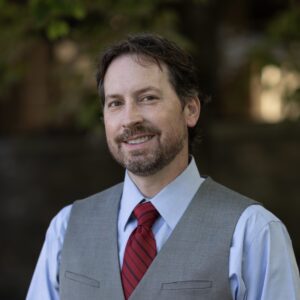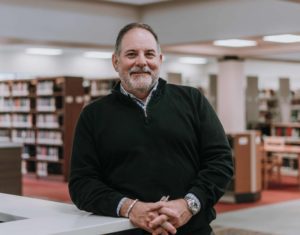Recently, a member of the Cairn University leadership team asked me to describe the top challenges that are facing Christian educators today. The loss of the concept of objective truth as a result of critical pedagogy immediately came to mind. The danger here is not only that we have concrete truths in history, the arts, and science at stake, but this postmodern line of thinking also results in the belief held by many individuals today that there are many ways to restore their relationship with God other than through Christ. These are worldview issues that must be addressed from and distinguished by a biblical perspective if we are to remain truly Christian in our educational pursuits.
Issue One: Critical Pedagogy and Subjective Truth
I was briefly introduced to the work of Brazilian critical educator Paulo Freire (1921–1997) during the early 1980s as part of my doctoral program; however, the real introduction came when I taught in Brazil in the Cairn University master’s program and was asked by one of the educators in the program what I thought of critical pedagogy. I had a lot to learn! Freire’s main book, introduced in North America in the early 1970s, was titled, Pedagogy of the Oppressed. In this book, he claimed that traditional education was an instrument of oppression with which teachers delivered to the students what they should learn about history and life in order to maintain the status quo. His specific solution was to (1) radically change structures of power in society that “oppress” or dominate one group over another (such as the role of teacher over students) and (2) dismiss the ideas (knowledge) teachers bring to the classroom to be “deposited” into the minds of students through the traditional modes of education. He thought that education could be used to reconstruct society by exchanging the power of the “elites” for the power of the oppressed[1].
While Freire seemed to have a heart for the oppressed, the poor, and the downtrodden in Brazil and used the concepts of hope and freedom throughout his writings, his solutions missed the mark because of his trust in humans to save themselves. He did not give credence to their sin nature; rather, he assumed that the good nature of man could save himself and solve all problems in society related to “us and them.” This solution is completely unbiblical, to say the least. Human beings are created in the image of God. Each one is equal in personhood before God, so each should be equal before Christ-followers and treated as such. While we do not necessarily have equal roles as a part of human institutions (such as teachers and students), we are all equal in personhood. A biblical perspective also acknowledges that individual humans are flawed as a result of their sin nature.
The flaws in Freire’s thinking did not stop his ideas from taking root. We see the effects of his teachings in the new understanding of what it means to be a critical thinker. While postmodern thought is not a full-blown philosophy of life, it is impacting cultural thinking about reality and truth. The word “critical’’ comes from the Greek root word “kritikos” (meaning able to discern). The word implies the development of discerning judgment based on a standard; it is more than a process (skill), and it always involves content (knowledge). Critical thinking is “the examination and test of propositions of any kind which are offered for acceptance, in order to find out whether they correspond to reality or not”[2]. Reality has been traditionally defined as that which actually exists, and truth as that which corresponds to reality; the new thinking, however, has replaced these definitions with the understanding that whatever one believes to be real is reality and the only reality one can ever know. A postmodern view of critical thinking leads to a definition like this one used in actual practice today: Critical thinking “involves a person using his own knowledge or point of view to decide what is right or wrong about someone else’s ideas”[3]. Whatever one believes is truth to them. The law of noncontradiction has been buried. In this view of knowledge and knowing, humans are truth makers rather than truth seekers. The self has become the starting point of their worldview.
This loss of objective truth can be traced to early critical theorists, some of whom were members of the Frankfurt School in Germany, a school of social theory and critical philosophy. Members held, in general, to the Marxist idea that truth claims are a mask for power. It is true that some alleged truth claims are and have been made in order to exercise control over others. For example, the claim that the Bible actually condoned the kind of slavery practiced in the South was for the purpose of legitimizing the cruel and oppressive treatment of African Americans. But this is not the type of claim they have in view here. This theory views all objective and absolute truth (not just truth claims) as a means to establish power that oppresses, whether by religion, government, class, or race. Critical theorists “viewed the concepts of truth, knowledge, and reason as little more than the intellectual instruments of established power”[4].
Critical theory (and by extension, critical pedagogy) champions this view. Critical theorists deny that there is a standard for truth-judging outside the human being. There is a huge gap between classic views of critical thinking that acknowledge the learner as a “truth seeker,” and critical postmodern views that view the learner as a “truth creator.” A truth seeker seeks outside himself for knowledge/truth as the standard for thinking and acting. A truth creator creates his own truth and becomes the standard for thinking and acting; the power for truth lies within the individual. Francis Schaeffer had it right when he began to call God’s truth the “true truth” that stands outside the human and is based on God’s existence and character and is, therefore, absolute[5].
Issue Two: Christian Youth No Longer Hold to the Biblical Truth That Jesus Is the Only Way to the Father and Think That This Truth Is Oppressive, Exclusive, and Arrogant.
This second issue naturally results from the first. When objective truth is questioned and considered to be an offensive abuse of power, truth about eternal matters will certainly be considered to be this as well. I have served on several doctoral dissertation committees in the past few years. One scholar did his research on the need for intentional teaching at his Christian international academy on this very issue. His dissertation grew out of a survey given to high school seniors over a three-year period that revealed the question related to salvation through Christ alone to be one of three weak areas. Why might this be?
Critical theory breaks down power structures. Religion or, in our case, biblical Christianity is a power structure “invader” claiming authority over adherents[6]. To those holding to critical theory, invasion from outside truth claims masks true humanity and the development of critical consciousness. The goal of critical consciousness is to tear down these historical power structures and then to restructure life with the self, class, or race accordingly. Does one give up Christianity or simply accommodate the culture? Youth are tempted to accommodate.
Students taught by well-meaning teachers to create their own views may very well miss the concept that objective truth exists outside the knowing mind and can be known. One key aspect of this truth is what God says about the way to be reconciled to himself through his Son. This truth is absolute and inclusive (“that whosoever believes may have eternal life”) but also exclusive (“He that hath the son has life; he that has not the son has not life.”). It is not my word as the teacher or the student’s voice that matters; it is God’s Word, his voice, that is the standard (“I am the way, the truth, and the life. No one comes to the Father except through me.”).
Implication for Christian Education
When we affirm that the “true truth” comes from God, the standard for truth in our classrooms is not what we think as teachers. No, the standard for both teacher and student is God’s perspective on life and learning as revealed in his Word and in his Son, Jesus. The implication for biblical worldview teaching is to point the student (and teacher) to the Word of God for answers to life’s biggest questions. It is not sufficient to end a worldview lesson with, “What do you think about this issue?” This is a prominent approach in some Christian school classrooms today, influenced by critical pedagogy and the method of dialogue allowing the voice of the student to have equal authority over any other, including God’s Word. It is far better to ask the student (and teacher), “What is God’s perspective on this issue?” Knowing God’s view is the start to having the mind of Christ, a renewed mind.
Humans are created with the capacity to come to know and have been given something to know: God and his created order. He has equipped humankind with reason and the five senses to use in discovering and discerning truth about himself, humankind, and the world. Because of the Fall, these means are flawed and imperfect; humans need revealed truth found in God’s Word and the guidance of God’s Spirit to help make sense of life. Christianity affirms that truth itself is true, grounded in the character of God, and worth pursuing. We use God’s revealed Word and his world to grow our understanding of who he is, who we are, and the nature of his created order. God is the ultimate reality; he is truth and reveals truth.
These worldview issues are, in my view, the major challenges of Christian educators in the first quarter of the 21st Century. We must not fail to see what is happening in our culture but rather develop a true biblical response. We must not fail to focus on “thus sayeth the Lord,” rather than “thus sayeth the teacher, the youth pastor, or a blog on the internet.” In developing a biblical response and a “renewed mind,” we must practice communication and critical thinking (in the classical sense). This involves addressing what fits with a biblical worldview and distinguishing what does not fit, pointing always, not to my social group, my political group, or my way, but rather to God’s Word and God’s way.
- Paulo Freire, translated by Myra B. Ramos, Pedagogy of the Oppressed, (New York, Continuum Publishing Co., 1981), 164.
- W.G. Sumner, Folkways: A Study of the Sociological Importance of Usages, Manners, Customs, Mores, and Morals, (New York: Ginn and Co., 1940), 632, 633.
- Alice Thomas and Glenda Thorne, “How to Increase Higher Level Thinking,” The Center for Development and Learning, accessed July 21, 2021, http://www.cdl.org/resources/reading_room/print/hot_and_successful.html.
- Richard Wolin, “Continental Philosophy,” Britannica, 2018, https://www.britannica.com/topic/continental-philosophy/Habermas-discourse-and-democracy#ref978091.
- Francis Schaeffer, The God Who is There, Anniversary Edition (Downers Grove: IVP Books, 2020), 181.
- See Pedagogy of the Oppressed, 159.
Dr. Martha MacCullough ’62 is distinguished professor emeritus in the School of Education. Dr. MacCullough taught at the University from 1980 until her retirement in 2014. During that time, she taught philosophy of education, educational psychology, theories of learning, school discipline, and teaching methods. She is the author of By Design: Developing a Philosophy of Education Informed by a Christian Worldview.




